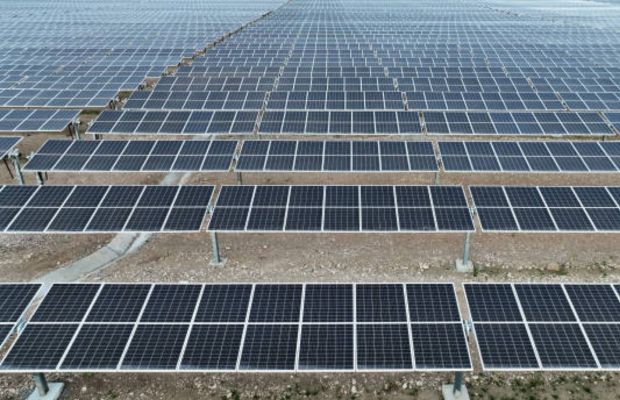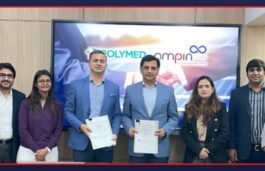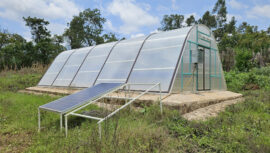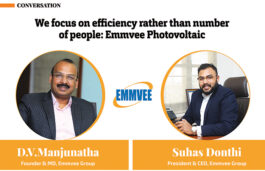Highlights :
- The reactor uses microwave-assisted pyrolysis to rapidly convert waste into products such as highly porous carbonaceous material (biochar) and bio-oil, depending on the characteristics of the feedstock and operating conditions.
 IIT Bhubaneswar Develops Solar-Powered Reactor For Waste Management
IIT Bhubaneswar Develops Solar-Powered Reactor For Waste Management A research team from the School of Infrastructure at the Indian Institute of Technology (IIT) Bhubaneswar has developed a solar-powered microwave pyrolysis reactor. This reactor is designed to recover valuable resources from both segregated and mixed waste materials, including biomass and plastics.
The reactor uses microwave-assisted pyrolysis to rapidly convert waste into products such as highly porous carbonaceous material (biochar) and bio-oil, depending on the characteristics of the feedstock and operating conditions. Current solid waste management practices primarily involve incineration, biogas plants, or landfill disposal, offering limited opportunities for recycling. Incineration, while an alternative to landfilling, often leads to significant environmental pollution through the release of toxic gases and ashes. The microwave-assisted pyrolysis technology developed by IIT Bhubaneswar represents a promising solution to these challenges.
“Microwave-assisted pyrolysis is a technology that produces valuable end products like biochar, bio-oil, and syngas in a very short amount of time, meeting the urgent need for sustainable waste management,” said Remya Neelancherry, the lead researcher of the project.
“Our research at IIT Bhubaneswar is focused on the feasibility and applicability of these end products across various sectors, including agriculture, transportation, and energy production.” An Indian patent has been granted for this technology.
A Green and Sustainable Approach to Waste Conversion
Remya explains the technology’s working principles, “This emerging technology utilizes microwave radiation to generate homogeneous heat within the feedstock, enabling efficient conversion into valuable end products at a faster rate with precise control over reactions. Furthermore, the reactor operates entirely on solar power, ensuring sustainability and self-reliance without imposing any additional energy demands.”
This novel, mobile technology requires minimal footprint area and is capable of converting waste at a rate of 10 kg/h into high-value end-products. The ease of mobility promotes decentralized waste management. Moreover, the technology is carbon-neutral, offering investors a direct opportunity to generate carbon credits. The end products of this process, biochar, and bio-oil, have a wide range of applications, from healthcare to agriculture and industrial applications. Studies suggest that biochar could be a promising replacement for coal, while bio-oil can serve as an alternative to petroleum products.
The conversion of high-heating-value refuse into these energy products can support efforts to achieve net-zero emissions and meet the IPCC’s (Intergovernmental Panel on Climate Change) 2°C global warming challenge. Other significant applications of biochar include soil improvement, slow-release fertilizers, carbon capture, and wastewater treatment. This environment-friendly technology can be implemented by municipalities and industries across various locations within cities, offering the potential to generate significant revenue with minimal pollution compared to incineration and other conventional waste management techniques.
“Depending on the waste management needs, this technology can be implemented in two forms: with a fixed bed reactor or a fluidized bed reactor. Research indicates promising potential for this technology to impact the alternative energy market positively. We welcome investors to explore this technology, ensuring environmental protection while fostering market growth,” Remya concluded.





























